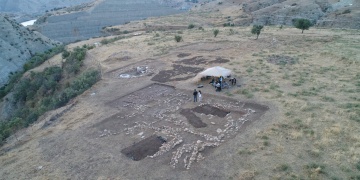
The Copper Age (The Chalcolithic period) began thousands of years earlier than thought. Archaeologists have found evidence of early copper use dating back to 8,500 BC at the Boncuklu Tarla archaeological excavation in Mardin. The archaeological…
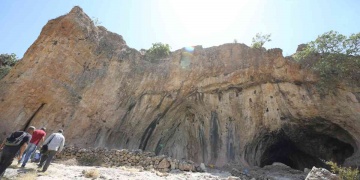
Findings dating back 450 thousand years have been found in Uluköy Cave so far. Uluköy Cave archaeological excavation is one of the rare archaeological excavations with Paleolithic Age content in Northern Mesopotamia.
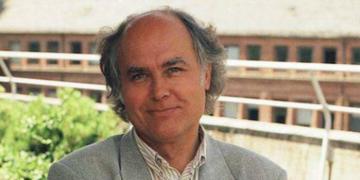
One of the leading figures in the field of Classical Archaeology, esteemed academic Prof. em. Dr. Volker Michael Strocka, has died at the age of 84. The Department of Classical Archaeology at the University of Freiburg mourns
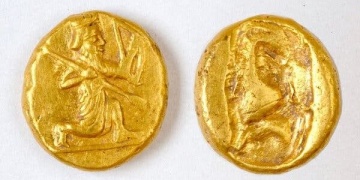
The gold coins were found inside a room beneath a home in Notion by arcaheologist an ancient city in western Turkey. They feature the figure of a kneeling archer, a design element used for the Persian daric, a gold coin issued by the Persian…
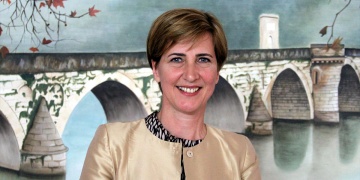
Sabine Ladstätter, who led the excavations in Ephesus for 14 years, has died after a long, serious illness.
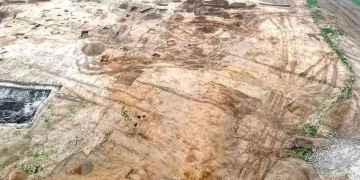
Archaeologists excavating at a Lancashire site unearthed ceramics, pottery, and various artefacts, indicating an Iron Age settlement and Roman occupation.
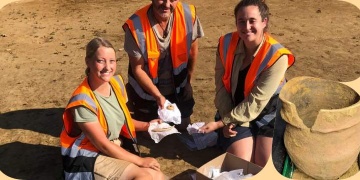
The recent find by Britannia Archaeology experts unearthed various unique artefacts on a Bronze Age archaeological site. One of the finds is an impressively intact urn that dates back to 4,000 years.
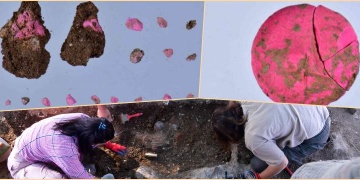
In the Ancient City of Aizanoi in Çavdarhisar district of Kütahya from Turkey, the remains of cosmetics such as bijouterie products and make-up materials used by Roman women 2 thousand years ago were brought to light.
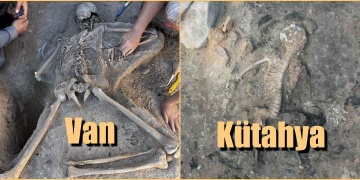
The near-impossible was realized in Turkey. A very rare finding in the world of archaeology was recently discovered in two different excavation sites in Turkey. Immediately after the discovery of a skeleton with a visible brain in the Ayanis castle…
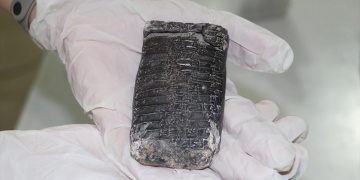
Many cuneiform tablets, many of which contain important information, have been found in the archaeological excavations of Aççana Höyük to date.
The last tablet that archaeologists found by chance without digging isamong the earthquake debris perhaps…
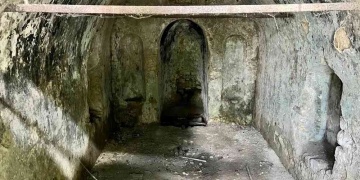
Lost Chapel found in Istanbul's Bağcılar district

Skyscape archaeologist Alessandro Berio, discovered new evidence that the ancient Minoan civilization developed significant nautical technologies to aid in international sea trade, which is linked to the wealth and expansion of the culture throughout…
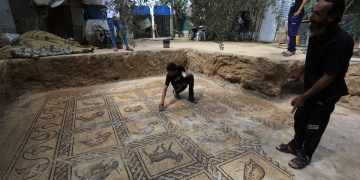
Gaza farmer uncovers Ancient Byzantine-era mosaic floors.
The Byzantine-era site was uncovered about half a mile away from the border with Israel by Suleiman al-Nabahin, a Gazan farmer.
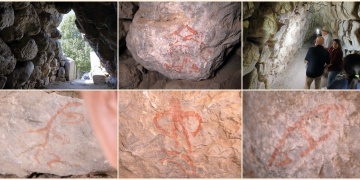
An exciting discovery in Hattusa, the capital of the Hittites. It is aimed to reach new information about the traditions of the Hittite civilization with 249 new hieroglyphs discovered in the Yerkapı Tunnel in Hattusa the capital of the Hittites.
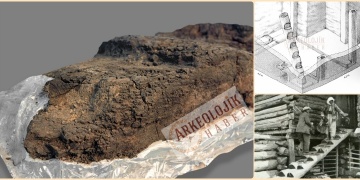
An 8500-year-old wooden ladder remain was discovered in Çatalhöyük, the oldest known metropolitan city in history.
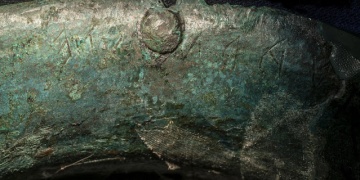
The words HARN STE engraved in the neck roll of the helmet could indicate the place of origin of the first owner, perhaps the town of Aharnam, the current Civitella d'Arna, near Perugia
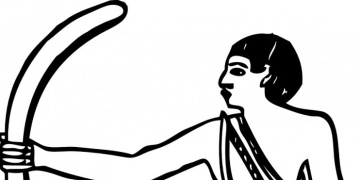
Ethnographic evidence reveals the use of boomerangs as retouchers in Australia. Use-marks on boomerangs comparable with stigmata on Palaeolithic bone retouchers.
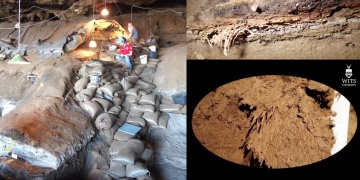
Early plant use by humans is not well studied because of poor preservation over time, however Border Cave's unique ecosystem has allowed for excellent preservation of this material - providing further insight into the lives of early humans in these…
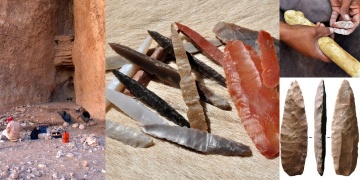
Stone fluted points dating back some 8,000 to 7,000 years ago, were discovered on archaeological sites in Manayzah, Yemen and Ad-Dahariz, Oman. Until now, the prehistoric technique of fluting had been uncovered only on 13,000 to 10,000-year-old…
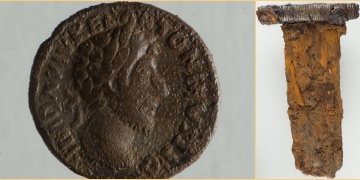
Roman coin may redraw historic trade map
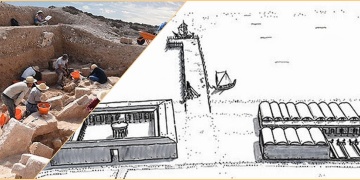
As part of a DFG-funded project, a German-Tunisian team co-directed by LMU archaeologist Stefan Ritter have surveyed the ancient city of Meninx on the island of Jerba and reconstructed its trading links in antiquity.
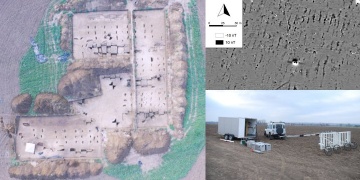
Puzzle of early Neolithic house orientations solved by a Slovak-German research team: Always counterclockwise!
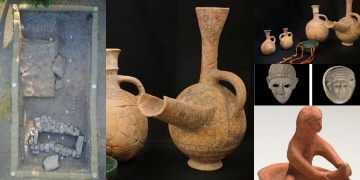
Phoenician family tomb discovered in Israel. Archaeologists have discovered the remains of an entire Phoenician family buried together in a tomb in Achziv, an ancient population center on the Mediterranean coast near the northern city Nahariya.


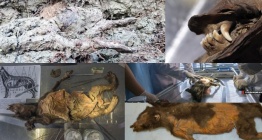

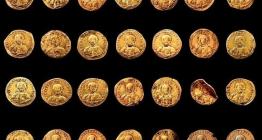

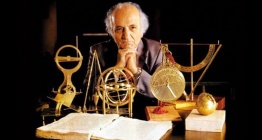


























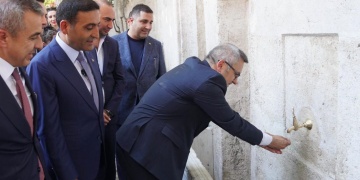 Beyoğlu'ndaki 17 Tarihi Çeşmeden de Su Akıyor
Beyoğlu'ndaki 17 Tarihi Çeşmeden de Su Akıyor 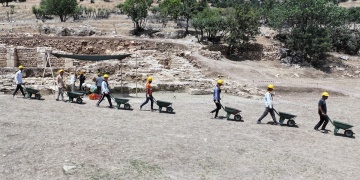 Diyarbakır ve Mardin'deki Arkeolojik Kazılar Kavurucu Sıcaklara Rağmen Durmuyor
Diyarbakır ve Mardin'deki Arkeolojik Kazılar Kavurucu Sıcaklara Rağmen Durmuyor 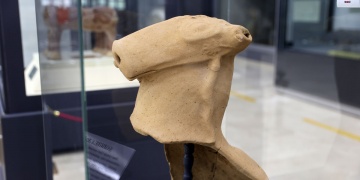 Hitit dönemine Ait Boğa Başlı Testi Sivas Müzesi'nde sergileniyor
Hitit dönemine Ait Boğa Başlı Testi Sivas Müzesi'nde sergileniyor  Sulak Alan Kaybı Dünya genelinde 2050'ye kadar 39 trilyon dolarlık ekonomik zarara neden olabilir
Sulak Alan Kaybı Dünya genelinde 2050'ye kadar 39 trilyon dolarlık ekonomik zarara neden olabilir 

